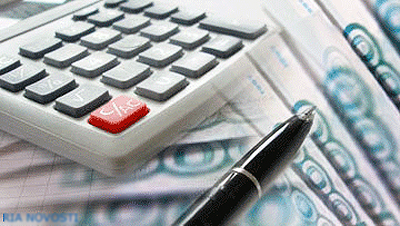Russia’s Money for Ukraine War Won’t Run Out Anytime Soon, Economists Say

(Russia Matters – russiamatters.org – Feb. 3, 2023)
Latest Findings
One of the freshest prognoses comes from economist Alexander Isakov and his colleagues at Bloomberg Economics. By their count, Moscow can comfortably keep the war going for at least three years, assuming the average price of Russia’s benchmark Urals crude doesn’t fall dramatically lower than $50 a barrel, price cap or not. Other than continued oil sales, the Kremlin will be able to draw on the still accessible portion of its foreign reserves, now held mostly in gold and yuan1 (albeit sales of the former outside Russia could prove problematic due to Western sanctions). The Russian government can also raise additional funds by increasing various taxes and duties through its “revenue mobilization” effort.
‘Protected’ Spending
Even if oil prices fall below $50 a barrel, defense spending is unlikely to be cut, according to The Bell, an economics-focused online news outlet. Russia’s budget, The Bell explains, includes certain “protected expenditures”—defense and security among them—which the government must be able to pay for with revenue not linked to the volatile energy sector, covering them instead through taxes, customs duties, excises and the like. Over the past eight years, The Bell notes, even when prices for Russian oil fell below $30 a barrel, the army continued to be fully funded.
Zubarevich also didn’t foresee the military getting short-changed. She half-jokingly predicted that Russia’s economy could gradually be dominated by a bloated military-industrial complex à la the Soviet 1980s—not an implausible scenario based on Russia’s latest industrial-output data.
Certainly, there are factors that could undermine the Russian government’s efforts to bankroll the war—like the health of the banking system, which is unclear—but Vladimir Putin’s “no limits” commitment to funding the military is hardly in doubt.
And in Ukraine, it will be military means, not sanctions, that win the war, Harvard’s Rogoff said at this year’s World Economic Forum in Davos, adding a few days later: “Sanctions won’t change a policy that a country holds very strongly in its political sphere… [C]ountries will sacrifice a lot to achieve their political ends.”
Footnotes:
1. Moscow stopped publishing its foreign-reserve and other financial data soon after invading its neighbor, in a move now getting pushback from its own Central Bank. The World Gold Council estimates Russia’s fourth-quarter 2022 gold reserves at 2,298.5 tonnes and Bloomberg estimated its yuan reserves as of Jan. 23 at $45 billion.
Article also appeared at russiamatters.org/blog/russias-money-ukraine-war-wont-run-out-anytime-soon-economists-say, with different images, bearing the notice: “© Russia Matters 2018 … This project has been made possible with support from Carnegie Corporation of New York,” with a footer heading entitled “Republication Guidelines” linking to: russiamatters.org/node/7406, which bears the notice, in part:
“If you would like to reprint one of these articles, a blog post written by RM staff, one of our infographics or a fact-check, we ask that you follow these guidelines:
- Include a prominent attribution to Russia Matters as the source and link back to the original at RussiaMatters.org.
- Retain the hyperlinks used in the original content.
- Do not change the meaning of the article in any way.
- Get an ok from us for non-substantive changes like partial reprints or headline rewrites and inform readers of any such modifications (e.g., This article first appeared on the Russia Matters website with the headline “Russian Election Interference in Trump’s Own Words”).
- Let us know about the reprint and send a link!
Please note that Russia Matters cannot grant permissions for third-party content, including articles, photographs and other materials not produced by our team.
Questions? Email us at RussiaMatters@hks.harvard.edu.”
